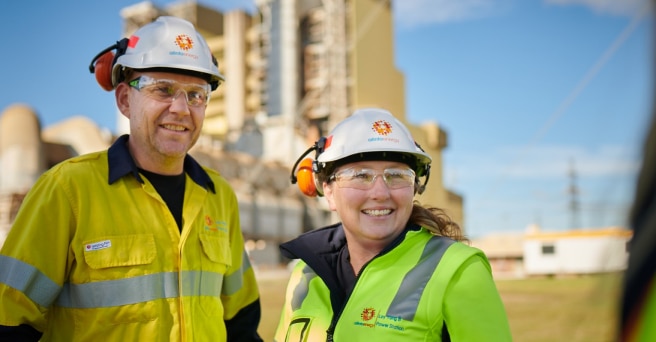Being Honest
About where Australia’s
energy comes from.
Understanding your rates and fees
Have you recently received a notification that your gas rates and fees are changing? Find out what this means for you, along with energy saving tips, financial support and more.
What's happening with my rates?
Our retail gas tariff for all customers will increase from 1 July 2025. We have also changed some of our fees including introducing a Paper Bill Fee and Over the Counter Fee.
Customers aged 65 and over, or in our Alinta Assist program have automatically been made exempt from these two fees. Customers with a valid concession can apply for exemption.
What should I do to prepare for these changes?
Frequently asked questions
The price you pay for gas can change for a few reasons including changes in the cost to buy your gas, to deliver your gas to your home or business through the pipes, movement in the energy market that impacts our business costs, and environmental charges associated with jurisdictional schemes. When these things happen, we need to change our rates so we can keep providing you the best possible service and reliability that you've come to expect from us.
A notification was sent to you by your preferred method (email or letter) in June to advise of these rate changes.
The tariff increases in Albany and Kalgoorlie have been calculated in accordance with the Energy Coordination (Gas Tariffs) Regulations 2000.
Albany is supplied using LPG. LPG is more expensive for Alinta Energy to purchase than natural gas.
Kalgoorlie is supplied using natural gas, but is supplied via a different gas pipeline, which impacts the cost of supplying gas there. Natural gas is still very competitively priced compared to alternative fuels available in Kalgoorlie.
If your rates change within your billing cycle, you will see two billing summary sections on the back of your bill: one section for charges to and including 30 June 2025 and the second section reflecting charges at the new rates from 1 July 2025.
While the start date for your new charges displays on your bill from 30 June 2025, your new rates will only take effect from 1 July 2025.
You're not being charged twice for your usage on 30 June 2025.
Due to our pricing structure extending beyond two decimal points, it's sometimes necessary to round your bill. We have a regulatory requirement to round figures that do not end in a "0" or a "5".
This rounding balances out over multiple bills, so while some bills may be rounded up, others may be rounded down, averaging out in the long run.
We review our fees regularly to make sure they reflect our constant efforts to provide the high level of local customer service and reliability you've come to expect from us including help with your bill queries, moving home and other support.
Yes, a Paper Bill Fee for each bill we send to you via post was introduced on 26 August 2025.
To avoid the fee, opt to receive bills via email by setting up paperless communication.
If you're aged 65 and over, or in our Alinta Assist program, you will automatically be made exempt and will not pay a fee.
Customers that hold a Health Care, Pensioner Concession, or Veteran Affairs concession card can register to be exempt.
Yes, an Over the Counter (Bill Payment) Fee for those that pay their bills at Australia Post will be introduced on 9 September 2025.
The best way to avoid this fee is by paying your bill online or setting up direct debit. This can be done easily and quickly in MyAccount.
This fee will not apply to customers:
- 65 and over OR
- On our Alinta Assist program OR
- Hold a Health Care, Pensioner Concession, or Veteran Affairs concession card
These fees cover the rising costs of certain services, like paper billing and over-the counter payments. By introducing these as fees, only those who use these services pay for them, rather than spreading the cost across all customers.
I may need help with paying my bills, what support is available?
If you need some support, we have a range of different payment options and assistance programs to help.



